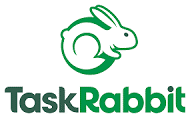TaskRabbit- More of a tortoise than a rabbit

Leveraging International scaling to radically change a platform pricing strategy
TaskRabbit was founded almost a decade ago in 2008, in the midst of the financial crisis, as an online and mobile market place where freelance labor meet with local demand for a wide area of services such as cleaning, moving or handyman work. Its founder, Leah Busque, originally a Software Engineer in the Software Group at IBM, had the original idea of creating a network of “neighbors helping neighbors”.
The platform, one of the first in the on-demand offering space, was initially started in Boston with $1.8 million in seed funding from venture capital firms, under the name RunMyErrand. The firm initially started its platform process on the old auction/eBay system where taskers/contractors would bid on jobs posted by users.
Hopping from one hole to another…
…Geographically….
In 2010, the company decided to change its name to TaskRabbit and to move its operations to the San Francisco Bay area.
This new location presumably allowed for the platform to have easier access to funding sources and also to platforms similar to its DNA such as Uber. Indeed the company was able to raise successively $5 million and then $17.8 million in 2011. In addition it expanded its platform so that it could be accessible through an App for IPhone users.
In 2013, the year of the opening of the London operations, its first non-US expansion, coincided with the company experiencing a decline in bids as well as completed and accepted tasks.
…New User Interface…
The international expansion offered the company a chance to radically change its offering parameters, reading the firm to move toward a more platform centric model.
TaskRabbit gave up the old auction model and moved toward a transparent pricing mechanism where a consumer would simply be offered a choice of three different taskers with a listing of their hourly prices and experience levels and would be able to order services on-demand. It therefore destroyed the bidding service, replacing it with fixed hourly rates for tasks.
The backlash from the taskers’ community was significant in the US. In London, however, where the new system was launched with no history behind it, the success was immediate with a robust user’s growth from the beginning. In the US, despite roadshow type communications to explain the change toward more transparent platform exchanges, the resistance lasted several months orchestrated by a vocally strong minority of taskers who objected that they were asked to basically make blind bids.
In the case of TaskRabbit it is fair to say that lack of appropriate communication with its complementors created for a while a publicly detrimental image. This was happily mitigated by the fact that the implementation of this new system corresponded with a quadrupling of the firm’s revenues in 2015.
The revised platform strategy also allowed for the company to open up to other user segments of the market such as healthcare and consulting services. It also created and “Instant Matching” new product which lets the user book a job within 5 minutes and have it completed within 90 minutes.
According to some press release, even though the company’ s initial market leadership has been challenged by increased competition from platforms such as Yelp, Angie’s list and others, opening the door for multi-homing, it is allegedly edging on profitability.
TaskRabbit might not be on the express – but often unprofitable- track of platforms such as Uber but its slower pace and profitability focus has still allowed for a total fund raising estimated at $50 million and a strong probability of being profitable in 2016.
Sources:
• https://www.applicoinc.com/blog/taskrabbit-is-trying-to-become-the-uber-for-everything-heres-why-it-wont-succeed/
• https://techcrunch.com/2015/01/21/through-the-fire-what-taskrabbit-learned-from-its-big-backlash/
• https://www.wsj.com/articles/uber-to-pay-20-million-to-settle-ftc-charges-on-earnings-claims-for-drivers-1484862070
• https://www.youtube.com/watch?v=AiyTZ5qxMvA
• http://venturebeat.com/2014/07/10/taskrabbit-pivots-launches-on-demand-service-for-cleaning-handiwork-moving-errands/
• http://www.inc.com/jeff-bercovici/taskrabbit-becoming-profitable.html


